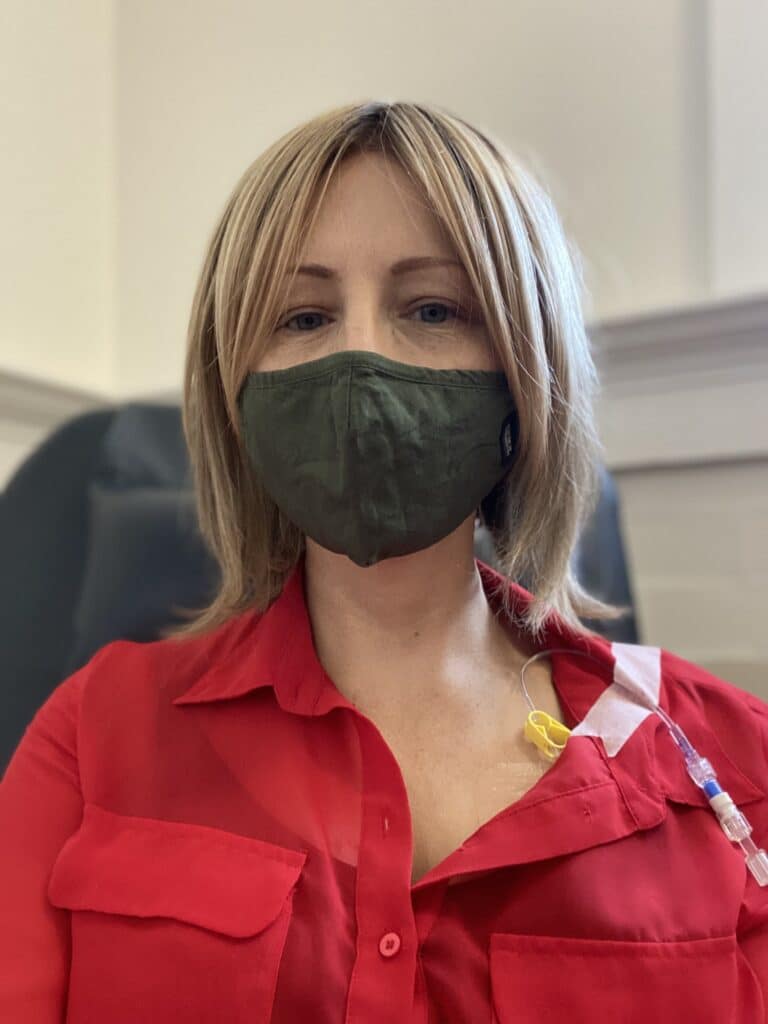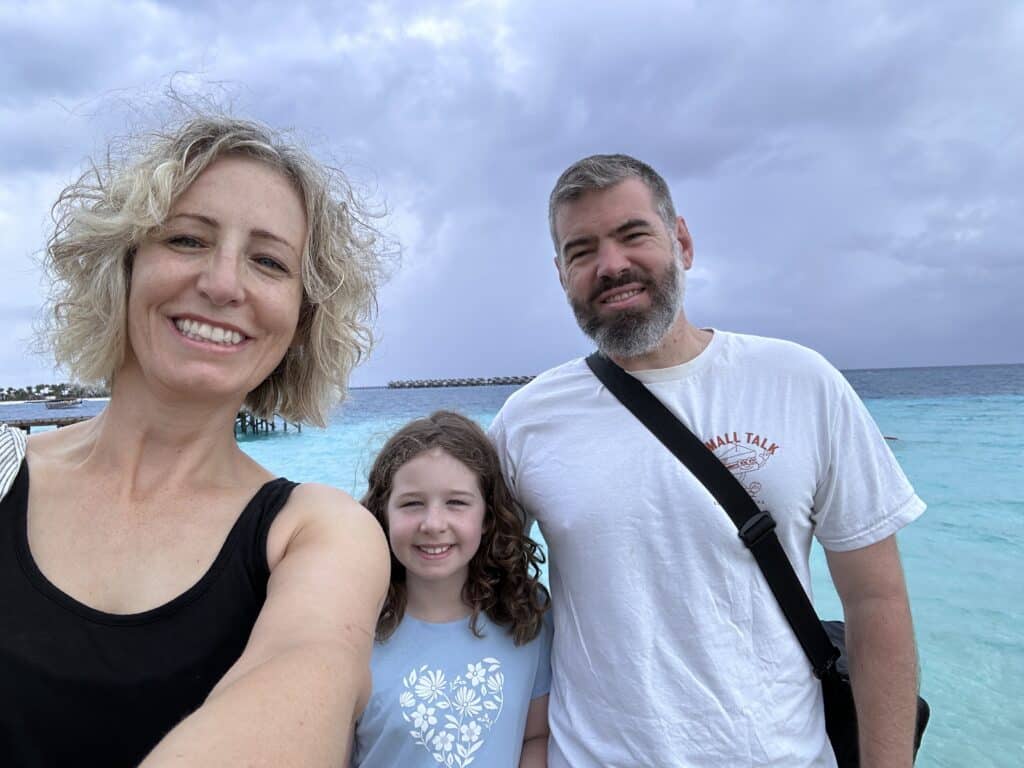In the middle of the pandemic, back in 2020, Diane Barker noticed a bit of swelling in her right breast. She’d been getting regular scans for breast cancer, however, so didn’t think much of it.
It was at her next appointment, when the radiologist entered her room, that Diane says she first felt that something was amiss.
“Normally it was just the cinematographer who was doing the scan [but this time] she went out and got the radiologist and she said ‘oh, you know, I think we probably need to come back for a biopsy’,” Diane says.
“That’s when I started to feel a bit uneasy about it.”
Diane’s second indication that something was wrong came when she tried to delay her biopsy appointment due to work commitments but the radiologist wanted to fast track it.
“That’s when I started to feel really worried because I thought she’d actually seen something there that might be of concern.”

Following more tests, Diane was diagnosed with triple negative breast cancer, and although she’d been “sort of preparing” herself for the news, she says “nothing really prepares you for that”.
“The PET scan results showed that it had spread to my lymph nodes which was a worry but it hadn’t spread beyond the lymph nodes, meaning it hadn’t metastasized to another organ,” she says. “Which is good because if it had metastasized to any other organ, I wouldn’t be speaking to you now.”

Compared to other types of breast cancer, triple negative breast cancer is more aggressive and has a greater propensity to develop into a metastatic stage, with poorer clinical outcomes as shown by higher relapse rates and lower survival rates.
It accounts for 15 per cent of all breast cancers, and doesn’t contain the most common types of receptors known to make most breast cancers grow–oestrogen receptor (ER), progesterone receptor (PR) and HER2 (human epidermal growth factor receptor 2).
While a new diagnosis of triple negative breast cancer is undoubtedly a frightening prospect, medical oncologist and translational researcher Stephen Luen assures patients that outcomes are continuing to improve as new research developments emerge.
“In the current medical context, it is important to understand that triple negative breast cancer is the breast cancer subtype with the greatest sensitivity to chemotherapy, is frequently recognised by the patient’s immune system opening up new treatment options to re-ignite the immune system, and has recently received new approvals in Australia for new drugs with new drug targets,” he says.
“Although treatment for triple negative breast cancer remains intensive and tough for patients, we are now curing the majority of newly diagnosed patients.”
Despite her initial fear, this was the case for Diane, who successfully finished her active treatment last March and says she’s been staying positive since then and receiving regular checkups.

When Karen Alexander, another patient, first received her triple negative breast cancer diagnosis, she tried to quell her worry by staying away from google and only looking at websites that her oncologist had referred her towards.
“It wasn’t until sometime after I’d finished my treatment, I was on one of the ‘approved websites’ looking for information on how long some of the side effects of chemo would last and stumbled on a discussion thread – which very quickly had me convinced that the cancer was going to come back and I only had another 5 years to live,” says Karen.

Concerned over what she’d seen, Karen reached out to her oncologist who reassured her that while not everyone has good outcomes, that wasn’t the case for Karen’s personal situation.
Luckily Karen says her partner, Rowan, offered the kind of positive support that helped her lean towards hope throughout her diagnosis.

And in supporting anyone else with triple negative breast cancer, she recommends steering clear of assumptions.
“Listen to them,” she says. “They’ll generally let you know what they need– whether it is a laugh or a cuddle– but do remember that what they are dealing with can be overwhelming and sometimes frightening, so have some tissues handy – you might need them for yourself.”

It’s Breast Cancer Awareness Month, and the latest free and online Q&A event from Breast Cancer Trials will be on the topic of triple negative breast cancer. Moderated by Author and Journalist Annabel Crabb, join leading breast cancer researchers and women with a history of triple negative breast cancer to discuss the latest in research, clinical trials and treatments.

